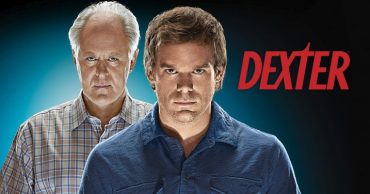David Foster Wallace appears with Charlie Rose to discuss the genius of David Lynch. He is influenced by the avant-garde post-modern style in his writing, but when he arrived at graduate school, the instructors were not impressed with his work. The climate of the institution and preference of the faculty leaned more towards a staunch realism that discounted David’s work as being not up to expectations. He developed an anger and hatred of them because of the differences in opinions and base philosophies, but soon realized that his feelings towards the faculty may have been misplaced. As David discovered that his material really was bad, he understood that the instructors were only trying to give constructive feedback. The theme and style had little to do with the fact that his writing was at the time not acceptable by University standards.
New awakenings
He joined a friend in watching the movie “Blue Velvet” It was a new concept that was not based on any other style, but was surreal in its approach and came across as original. It was typical David Lynch, but new. He tells how the movie helped him to awake from the delusion that he was living in to realize that he needed to have rethink some of his previously held notions about style and content. For Foster Wallace, the David Lynch film touched him i a profound way, but had he not possessed the analytical abilities within his arsenal, he likely would have remained clueless. It was a moment of enlightenment for him that was triggered by Lynch’s approach to “Blue Velvet along with Foster-Wallace’s interpretation and understanding of what the filmmaker had set out to accomplish.
Siskel and Ebert on Blue Velvet
David Foster Wallace was not alone in his deep analysis of the film. The production seemed to call for this from people of all walks of life. Even those who had little understanding of the mechanics or nuances of writing screenplay or directing film, felt deeply moved after their viewing experiences. Was it good or was it bad? This depends entirely on who you ask.
Mixed reviews
Reviews for this film were all over the place and it was David Lynch’s creativity and professionalism that was on the line. He’s big enough to take the criticism, but this work was something that was so new and different that it left some people scratching their heads. It’s been referred to as a masterpiece, which is more along our take on the film as well as Foster Wallace’s. Others called it a work that showed depravity referring to it as being “sick.” A third group of viewers arose with a critique that referred to the film as a “sick and depraved masterpiece.” Even if you didn’t agree with the content or the surrealist approach to filming, it did pack a powerful punch that made you talk about it.
Breaking out and making an impact
Lynch may have taken a chance with his new and unfamiliar approach to “Blue Velvet” but it was one that was worth taking. He moved people in a variety of different ways that promoted critical thinking. David Foster Wallace was no exception and we’re thankful for his insights into Lynch’s intention in crafting the film because it gives us a better view of the whole picture.
 Follow Us
Follow Us





